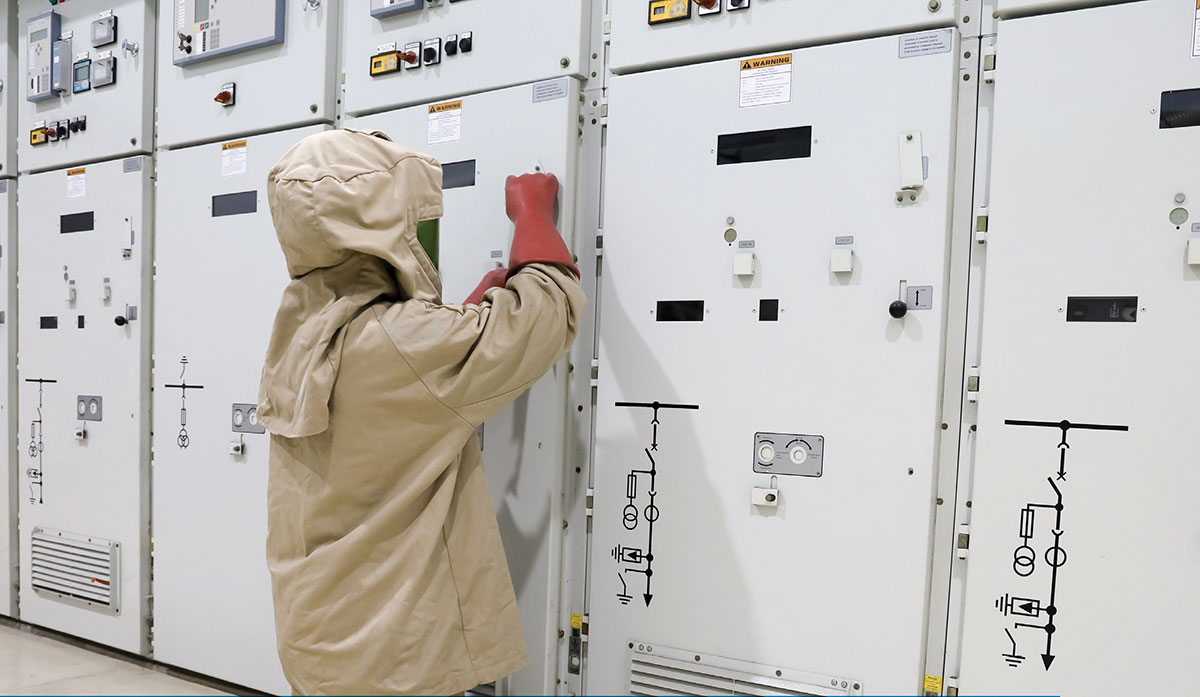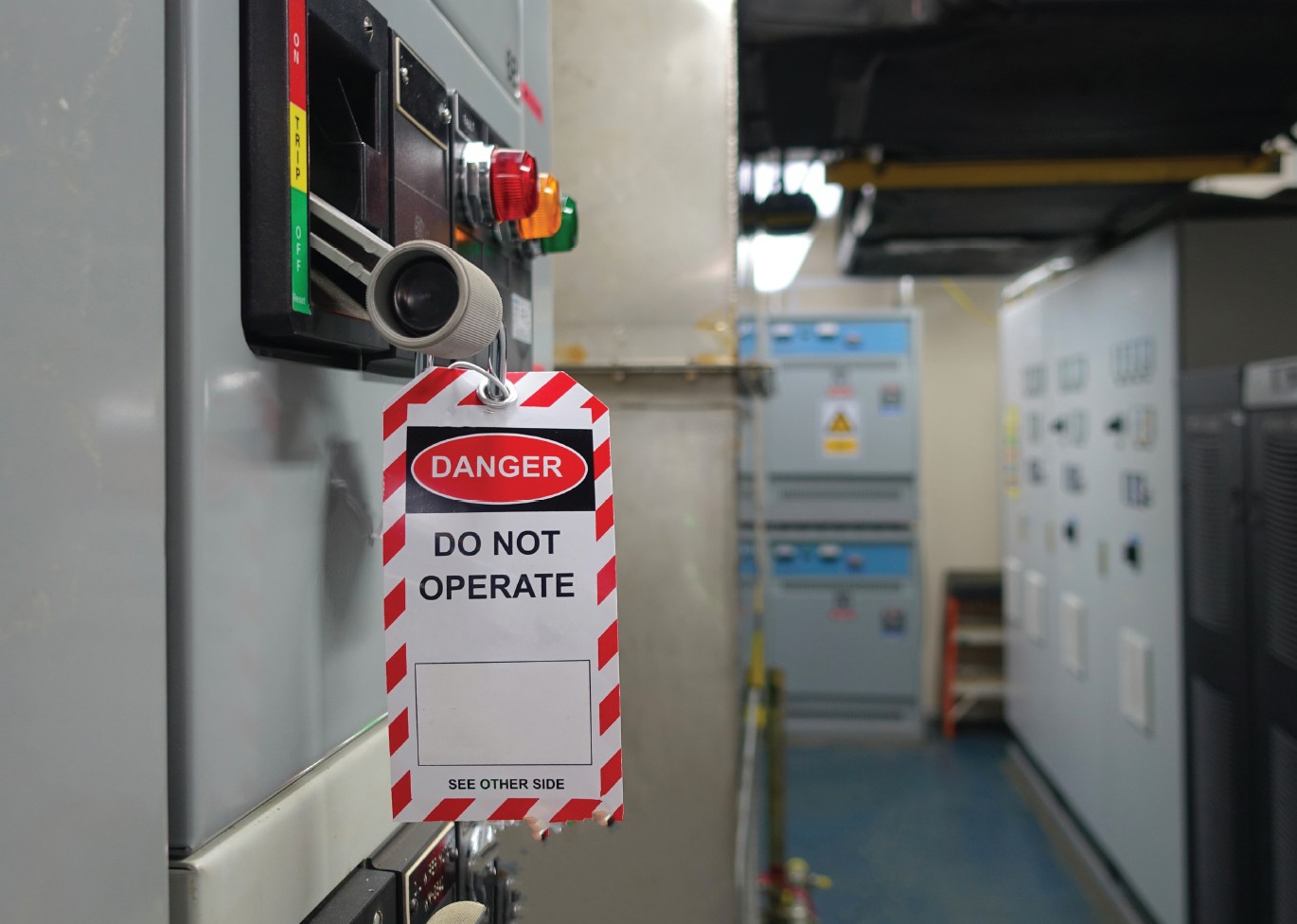More than likely, however, in our industry, what we do know about electricity will cause more damage. Although armed with knowledge, we tend to forget the precautions and get caught up in the excitement of electricity.
What you don’t know about Electricity could hurt you and your family…
More than likely, however, in our industry, what we do know about electricity will cause more damage.
Although armed with knowledge, we tend to forget the precautions and get caught up in the excitement of electricity, as Icarus was captivated by the thrill of flight. Long ago he and his father, Daedalus, were imprisoned on the island of Crete, with no hope of escape. Not wishing his only son to face this terrible ordeal, Daedalus made artificial wings. Warning his son not to fly too close to the sun lest the wax melt, Daedalus and Icarus soared off the island, discovering the excitement and thrill of flight. In his ecstasy, Icarus forgot his father’s warnings and flew farther and higher, until the sun melted the wax and, tragically, he plunged into the Aegean sea.
Each of us can relate horrible, tragic tales of those who have dared to draw too close to Electricity, those who have paid the ultimate price for her intimacy.
Though an exciting, appealing and awe-inspiring temptress, Electricity has no favored ones. She strikes furiously at those who, in familiarity, presume to live on the edge or push to the extreme and who handle her carelessly.
Electrical Systems Need Inspection
Consumer Product Safety Commission studies of residential electrical fires show that the majority of serious fires need not have occurred. The conditions that caused the fires probably would have been detected by an electrical inspection. These problems were not detected or corrected because no inspection had been made for several years. In a number of cases investigated by CPSC, homes ranging from 40 to 100 years old had not been inspected since they were built. A safety inspection should be performed by a qualified electrical or licensed electrical inspector.
To insure the electrical safety of your home, your electrical inspection should be up-to-date and defects corrected. There are no hard-and-fast rules about frequency of inspection but here are some suggestions:
To determine when your electrical system was last inspected, examine the door and cover of your electrical panel(s). The panel should contain a label or tag with a date, a signature, or initials on it. If there is more than one date, the most recent one should be the date of the last inspection. DO NOT remove the service-panel cover. This is a job for a qualified electrician.
| POWER OUTAGES | fuses need replacement or circuit breakers need resetting frequently |
| OVERRATED PANEL | electrical panel contains fuses or circuit breakers rated as higher currents than the ampacity (current capacity) of their branch circuits, sometimes called “overamped” or “overfused” |
| DIM/FLICKERING LIGHTS | lights dim or the size of your television picture shrinks often |
| ARCS/SPARKS | bright light flashes or showers of sparks anywhere in your electrical system |
| SIZZLES/BUZZES | unusual sounds from the electrical system |
Problems with Home Electrical Wiring
Each year many Americans are injured in and around their homes. Unsafe conditions such as overloaded circuits and damaged insulation as well as the misuse of extension cords and electrical products create fire hazards and may result in electrocutions.
The most recent U.S. Consumer Product Safety Commission statistics show that 40,000 fires a year are caused by problems with home electrical wiring, resulting in one life being lost every 25 hours (over 350 fires lost annually), approximately 6,800 injuries and over 2 billion in property damage.1Workplace statistics show one person is electrocuted in the workplace every day2; and millions of dollars are lost in corporate and personal productivity and assets because of related litigation.
Take a few minutes to look for and correct electrical safety hazards in your home. It does not take too long to check the insulation on a cord, move an appliance away from water, check for correct wattage light bulbs or install a GFCI (Ground Fault Circuit Interrupter).
Invest your time. It could prevent an electrical safety hazard and save lives.
If your last inspection was…
- 40 or more years ago, inspection is overdue
- 10-40 years ago, inspection is advisable, especially if substantial electrical loads (high-wattage appliances, lights and wall outlets or extension cords) have been added or if some of the warning signs discussed are present.
- Less than 10 years ago, inspection may not be needed, unless some of the warning signs, described are present or temporary wiring has been added.
- You may live in an area that is not served by state or local electrical inspectors, so that no inspection record will be found on your electrical panel. In that case, use the age of the house as a guide to the probable need for an inspection.
Light Bulbs
Q. Are the light bulbs the appropriate size and type for the lamp or fixture?
A bulb of too high wattage or the wrong type may lead to fire through overheating. Ceiling fixtures, recessed lights, and “hooded” lamps will trap heat.
-
Replace with a bulb of the correct type and wattage. (If you do not know the correct wattage, contact the manufacturer of the fixture.)
-
Place halogen lamps away from curtains. These lamps become very hot and can cause a fire hazard.
Appliance Power Budget
Circuits can only handle a specifiedtotalwattage of all the electrical products connected to that circuit. If too much wattage is plugged into a circuit, serious electrical problems can result. Here is a guide to knowing what a circuit can handle:
| 5-ampere branch circuit can carry 1500 watts.20-ampere branch circuit can carry 2000 watts. |
Find the nameplate on each appliance indicating its power (watts) rating. Add up the total watts for appliances that you may use at the same time on the same branch circuit. Examples:
| Hair Dryer | 1400 watts |
| Iron | 1000 watts |
| Portable Heater | 1200 watts |
| Vacuum Cleaner | 1300 watts |
| Deep Fat Fryer | 1300 watts |
| Portable Fan | 150 watts |
Most home lighting and wall outlet branch circuits may carry as much as 1500 watts (15ampere branch); some kitchen circuits, as much as 2000 watts (20 ampere).
Shock Protectors
A ground-fault circuit interrupter (GFCI) detects any loss (leakage) of electrical current in a circuit that might be flowing through a person using an electrical product. When such a loss is detected, the GFCI turns electricity off before severe injuries or electrocution can occur. (However, you may receive a painful shock during the time that it takes for the GFCI to cut off the electricity.)
GFCI wall outlets can be installed in place of standard outlets to protect against electrocution for just that outlet, or a series of outlets in the same branch.
A GFCI circuit breaker can be installed on some circuit breaker electrical panels to protect against electrocution, excessive leakage current and overcurrent for an entire branch circuit.
Plug-in GFCIs can be plugged into wall outlets where appliances will be used.
Q. Have you tested your GFCIs to be sure they still offers protection from fatal electrical shock?oYesoNo
A GFCI can provide power without giving an indication that it is no longer providing shock protection. Be sure your GFCI still provides protection from fatal electric shock.
- Test monthly. First plug a night light or lamp into the GFCI-protected wall outlet (the light should be turned on), then depress the “TEST” button on the GFCI. If the GFCI is working properly, the light should go out. There will be an indicator to show if it is working properly or not. If it is working, it will disconnect the power from the protected circuit or plug. If not, have the GFCI replaced. Reset the GFCI to restore power.
- If the “RESET” button pops out but the light does not go out, the GFCI has been improperly wired and does not offer shock protection at that wall outlet. Contact a qualified electrician to correct any wiring errors.
PROBLEM: Electric shocks can be more serious in certain locations of the home such as bathrooms, kitchens, basements and garages where people can contact heating radiators, water pipes, electric heaters, electric stoves and water in sinks and bathtubs. If a person touches one of these and a faulty electrical appliance at the same time, they can receive a shock and may be electrocuted.
- If you have a home without GFCIs, consult with a qualified electrician about adding this protection.
- If you want to install some GFCI protection yourself, use plug-in units to protect individual wall outlets. Both two-conductor and three-conductor receptacle outlets can be protected with plug-in units.
- You may have a newer home that is equipped with GFCIs in the home areas mentioned above.
Rated for 1625 Watts
Change the cord to a higher rated one or unplug some appliances, if the rating on the cord is exceeded because of the power requirements of one or more appliances being used on the cord.
- Use an extension cord having a sufficient amp or wattage rating, if an extension cord is needed.
Q. Do extension cords carry no more than their proper load, as indicated by the ratings labeled on the cord and the appliance?
Overloaded extension cords may cause fires.
- Replace No. 18 gauge cords with No. 16 gauge cords. Older extension cords using small (No. 18 gauge) wires can overheat at 15 amps or 20 amps.
Receptacle Outlets and Switches
Q.Do all outlets and switches have cover plates so that no wiring is exposed?
oYesoNo
Exposed wiring presents a shock hazard.
Add a cover plate.
Q. Are small electrical appliances such as hair dryers, shavers, curling irons, unplugged when not in use?
oYesoNo
Small Appliances and Tools
Even an appliance that is not turned on, such as a hairdryer, can be potentially hazardous if it is left plugged in. If it falls into water in a sink or bathtub while plugged in, it could electrocute you.
-
Install ground fault circuit interrupter (GFCI) protection near your kitchen and bathroom sinks to protect against electric shock. For more information, see the section on GFCIs.
-
Unplug all small appliances when not in use.
-
Never reach into water to get an appliance that has fallen in without being sure the appliance is unplugged
Q. Do you make sure that there is nothing covering your electric blanket when in use, and do you avoid “tucking in” the sides or ends of your electric blanket?
o Yes o No
“Tucking in” an electric blanket or placing additional coverings on top of it can cause excessive heat buildup which can start a fire.
Do not tuck in electric blankets.
-
Use electric blankets according to the manufacturer’s instructions.
-
Don’t allow anything on top of the blanket while it is in use. (This includes other blankets or comforters, even pets sleeping on top of the blanket.)
-
Do not use electric blankets on children.
Cords
Q. Are lamp, extension, telephone and other cords placed out of the flow of traffic?oYesoNo
Cords stretched across walkways may cause someone to trip.
Whenever possible, arrange furniture so that outlets are available for lamps and appliances without the use of extension cords. Extension cords should not be used as a substitute for permanent wiring.
- If you must use an extension cord, place it on the floor against a wall where people cannot trip over it.
- Move the phone so that telephone cords will not lie where people walk.
Q. Are cords out from beneath furniture and rugs or carpeting?oYesoNo
Furniture resting on cords can damage them. Electric cords which run under carpeting can overheat and cause a fire.
Remove cords from under furniture or carpeting. Replace damaged or frayed cords.
Q. Are cords attached to the walls, baseboards, etc. with nails or staples?
o Yes o No
Nails or staples can damage cords, presenting fire and shock hazards.
- Remove nails and staples from cords after disconnecting power.
- Check wiring for damage.
- Use tape if necessary to attach cords to walls or floors.
Q. Are electrical cords in good condition, not frayed or cracked?
o Yes o No
Damaged cords may cause a shock or fire.
- Replace frayed or cracked cords.
- Do not use frayed electrical cords
The National Electrical Safety Foundation established in July 1994 as a publicly organized charitable organization, is dedicated to the mission of building public awareness about the importance of respecting electricity and using electrical products safely in the home, school and workplace.
To contribute to this effort, contact NESF at 703-841-3211.
Copyright © 1999 by NESF. Reprinted with permission.










Find Us on Socials